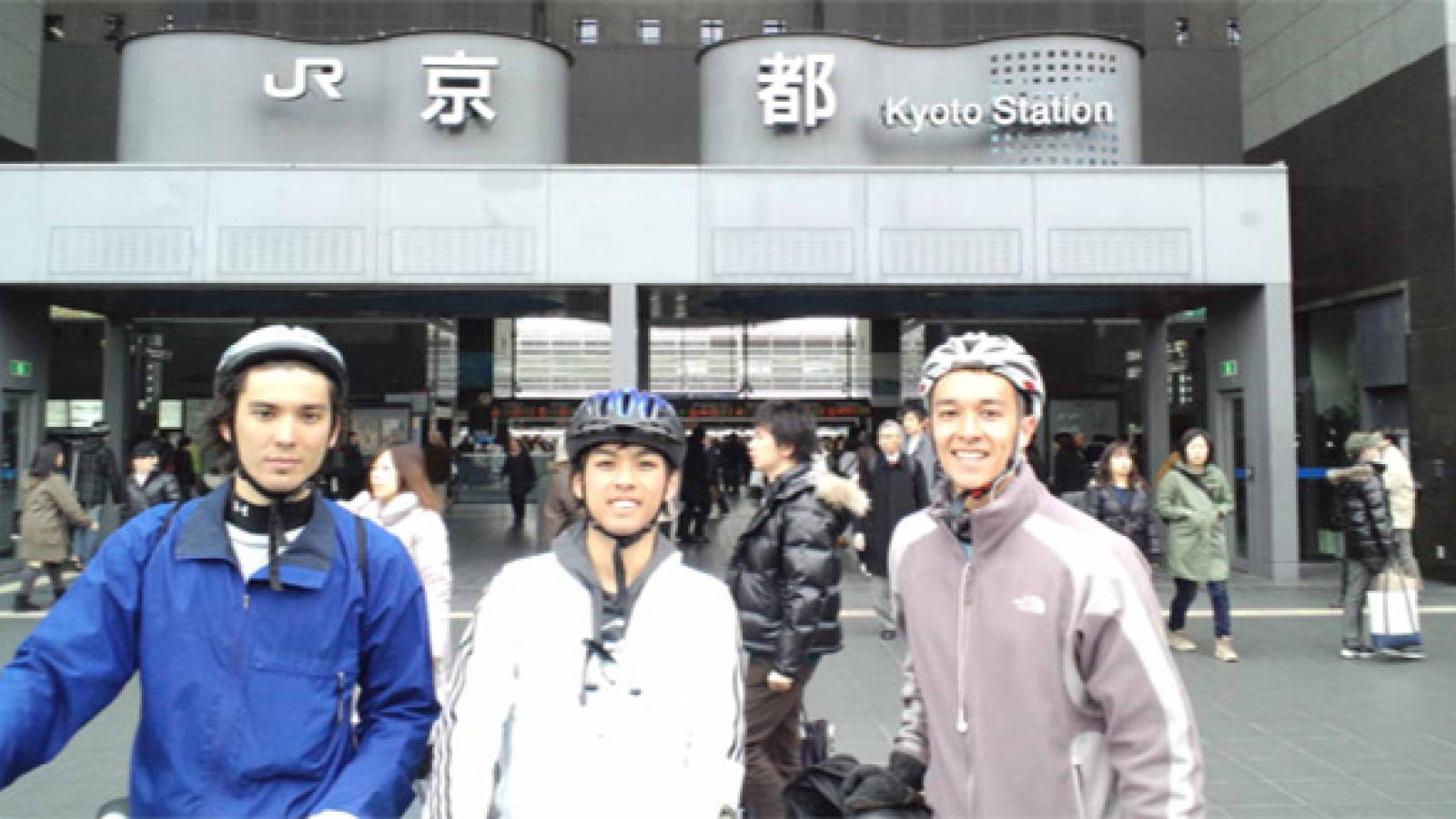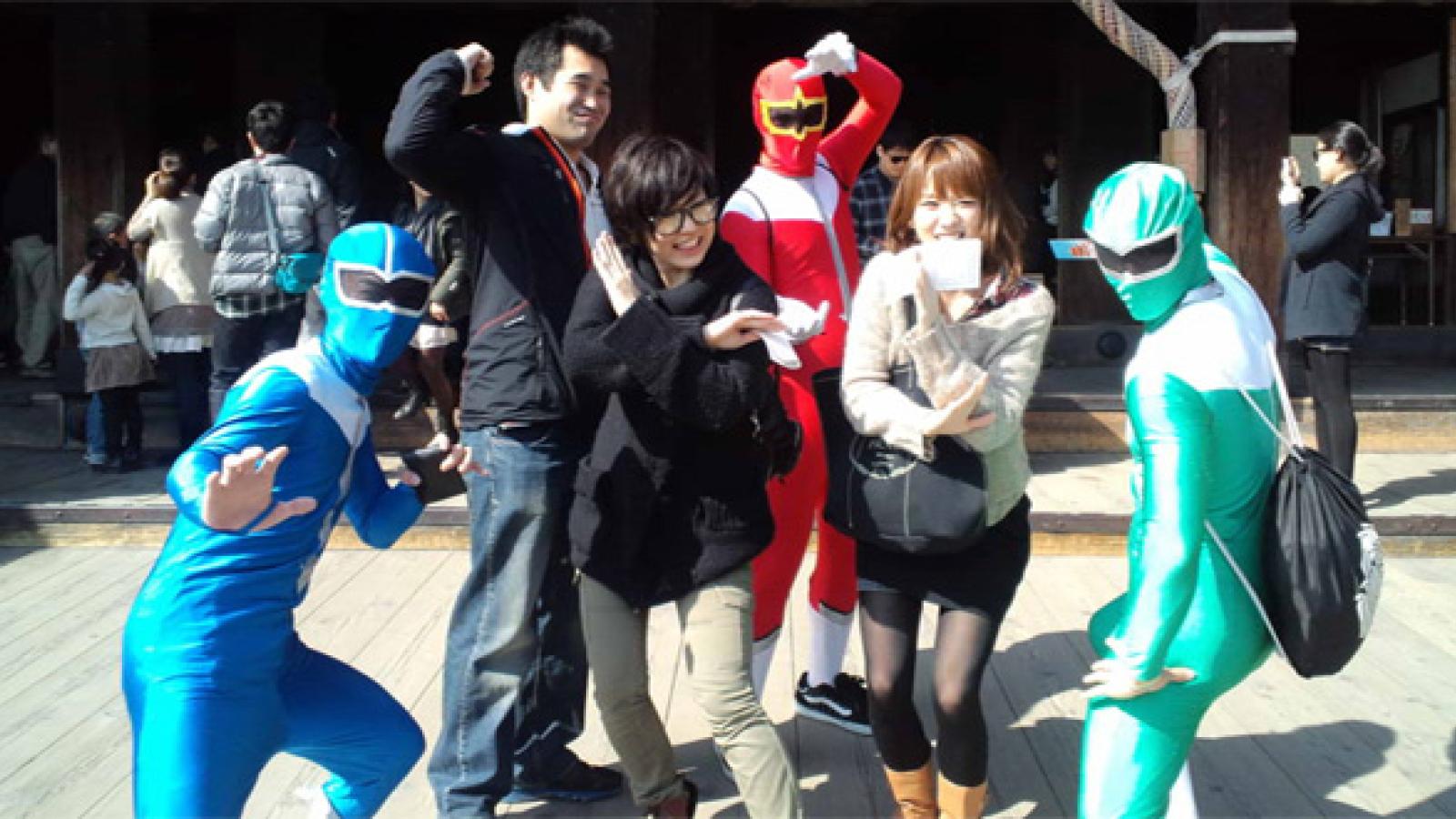The Day the Earth Shook, Japan
George Lea
"Aimlessly flipping through the pages of my test I heard the first phone vibrate just a few seats behind me. Just minutes before our professor had reminded us to either turn our phones off or put them on silent mode. I lifted my head to see the disgruntled look on the professor's face that I was expecting. However, as the rest of our phones began to vigorously vibrate and ring, all within seconds of each other, his look slowly turned into one of fear. By now it had been over a month since March 11, and there was not a soul in the classroom that wasn't aware of what was about to happen. At once, we all clinched on to our desks as we timorously awaited the shock.
The earthquake that hit Japan on March 11 was one that nobody could have foreseen. Researchers suggest that an earthquake and tsunami of that magnitude hits the region once every 1000 years. This just happened to be the year I decided to study abroad at the International Christian University in Tokyo, Japan. At the time it hit, I was 500km west of Tokyo battling my own dilemmas as I was pedaling my way up and down snowy mountain roads. Just weeks before this, my roommates and I had sat down to plan a bicycle trip up north when one of them mentioned he had never seen the city of Kyoto. Upon learning this, we quickly decided on Kyoto as our new destination. We would be traveling west, not north, later proving to be a decision that may have saved our lives.
Although I did not physically feel the impact of the earthquake that day, it is not to say I did not feel the effects. Just days after the quake, the incident at the Fukushima power plants occurred. All television channels were filled with coverage of the earthquake, tsunami and radiation. There was not a channel that would dare show anything unrelated to the matter for the week to follow, as people were glued to their television sets seeking the latest updates. The only commercials that ever aired were from Advertising Council Japan, better known as AC Japan, an organization that aims to improve communication and environmental issues within Japan by sending out messages to bolster public morale and ethics. By the end of the week, there was not a person in Japan with television access that could not quote the AC commercials.
The streets were noticeably quieter than before. There were fewer people going out, eating out, shopping and visiting friends. Even most businesses took a short leave. The word jishyuku, meaning self-restraint, was often thrown around to explain this behavior. Most thought it was better to lock themselves in their homes at a time like this as a way to pay respect to those directly affected. This in turn led to people spending less which ended up hurting the economy, only adding more problems to the already disheartened country.
Aftershocks, similar to the one that struck during my exam, became a regular occurrence for people living in the eastern part of Japan. I was often woken up to either the eerie earthquake alert produced by my phone or an actual aftershock itself. I would often sit up and watch the books on my shelf rattle as my bed made slight left to right movements. Despite growing quite accustomed to the daily shocks, I would be lying if I told you that I never thought "this time may be my last."
It's hard to say if I was more terrified of the siren-like alert my phone made or the aftershock itself. There were countless times where an alert would sound but no shock would be felt. The numbers were staggering, some sources estimate over 1000 aftershocks had occurred within a month after 3.11. Similar to how many Americans will never forget the exact time, location and what they were doing when 9-11 occurred, I will never forget my experiences in Japan on the 11th of March. Even as the circumstances surrounding Japan seemingly worsened in the days following 3.11, it was amazing to see the country come together as one, relentlessly fighting to overcome the disaster. With help and aid from countries around the world, Japan has battled and continues to battle in hopes of making a full recovery."
Sources
Japan tsunami 'could be 1,000 year event' - BBC
Japan Aftershocks: More Than One-Thousand Aftershocks So Far - Bruce Sussman (Portland Weather)


